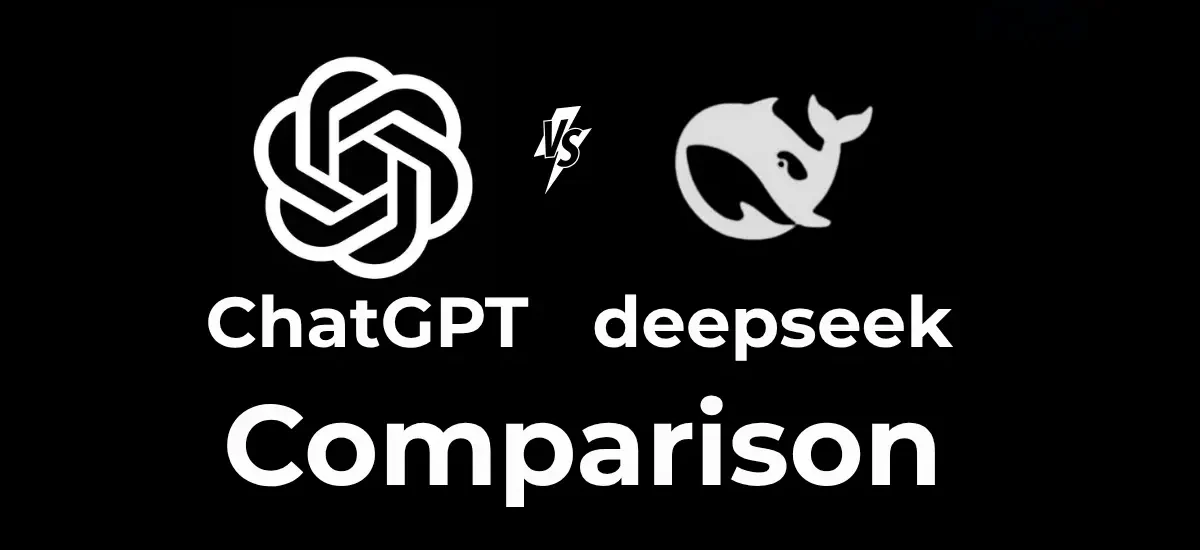



In the fast-evolving world of AI language models, two titans stand out in 2025: DeepSeek and ChatGPT. Both are powerful chatbots transforming how we work, create, and solve problems, but they cater to different needs. This guide dives into a detailed comparison of DeepSeek vs ChatGPT, exploring their features, performance, and ideal use cases for U.S. users. Whether you’re a coder, researcher, or content creator, understanding these AI tools will help you choose the right one for your goals.
DeepSeek, developed by a Chinese AI startup founded in 2023, is an open-source large language model (LLM) that has taken the U.S. tech scene by storm. Its latest model, DeepSeek R1, released in January 2025, became the top free app on the U.S. Apple App Store, surpassing ChatGPT. Built on a Mixture-of-Experts (MoE) architecture with 671 billion parameters (activating only 37 billion per query), DeepSeek is designed for efficiency and precision.
Key Features of DeepSeek:
DeepSeek’s focus on technical tasks and affordability makes it a favorite for coders and researchers in the U.S.
ChatGPT, created by OpenAI, is a household name in AI, known for its conversational prowess and versatility. Launched in 2022, it uses a transformer-based architecture with 1.8 trillion parameters, offering a polished, user-friendly experience. Available in free and premium versions (ChatGPT Plus), it’s widely used across industries in the U.S. for everything from content creation to customer support.
Key Features of ChatGPT:
ChatGPT’s versatility and ease of use make it a go-to for U.S. users seeking a reliable, all-purpose AI assistant.
While both DeepSeek and ChatGPT are AI language models designed to process and generate human-like text, their approaches and strengths differ significantly:
These differences make DeepSeek ideal for technical users, while ChatGPT suits a broader audience seeking versatility.
To compare DeepSeek and ChatGPT, I tested both with three prompts relevant to U.S. users: a coding task, a creative writing task, and a research question.
| Feature | DeepSeek | ChatGPT |
|---|---|---|
| Architecture | Mixture-of-Experts (671B parameters, 37B active) | Transformer (1.8T parameters) |
| Accessibility | Open-source, fully customizable | Closed-source, freemium model |
| Best Use Cases | Coding, math, technical analysis | Content creation, general inquiries |
| Accuracy | 90% (math), 97% (coding) | 89th percentile (Codeforces) |
| Speed | Faster for technical tasks (5s avg.) | Faster for general tasks (4s avg.) |
| Cost | Free, low training cost ($5.6M) | Free tier, premium at ~$20/month |
| Multilingual Support | Strong in Chinese, English | Broad multilingual capabilities |
| User Interface | Technical, less intuitive | Polished, beginner-friendly |
This table highlights DeepSeek’s edge in technical tasks and cost, while ChatGPT excels in versatility and accessibility.
| Model | Pros | Cons |
|---|---|---|
| DeepSeek R1 (Free) | Free, open-source; excels in coding/math; low resource use | Limited creative flair; occasional censorship; steeper learning curve |
| ChatGPT Plus ($20/mo) | Advanced o1 model for reasoning; user-friendly; reliable updates | Closed-source; higher cost; resource-heavy architecture |
Note: DeepSeek’s premium version is not widely available in the U.S., so the comparison focuses on its free R1 model. ChatGPT Plus offers enhanced features but requires a subscription.
Choosing between DeepSeek and ChatGPT depends on your needs in the U.S. market. DeepSeek is the go-to for coders, data scientists, and researchers who prioritize precision, cost-efficiency, and open-source flexibility. Its ability to handle complex technical tasks with minimal resources makes it a game-changer for startups and developers. However, its occasional censorship (e.g., on sensitive political topics) and less intuitive interface may frustrate some users.
ChatGPT, on the other hand, is the better choice for general users, content creators, and businesses needing a versatile, user-friendly AI. Its conversational strengths, broad knowledge, and polished experience make it ideal for everyday tasks, from drafting emails to brainstorming marketing ideas. The premium version (ChatGPT Plus) adds advanced reasoning, but the cost may deter budget-conscious users.
Verdict: Pick DeepSeek for technical, data-heavy tasks; choose ChatGPT for creative, conversational, or broad-use cases. For U.S. users balancing cost and performance, DeepSeek’s free model is hard to beat, but ChatGPT’s reliability and polish keep it ahead for general applications.
Yes, DeepSeek’s R1 model is free and open-source, making it accessible for U.S. developers and businesses. No premium tier is widely available as of May 2025.
ChatGPT performs well in coding and math (89th percentile on Codeforces), but DeepSeek’s 97% coding accuracy and efficiency give it an edge for technical tasks.
Yes, DeepSeek may restrict responses on sensitive topics like politics (e.g., Taiwan or Tiananmen Square), which can limit its utility for U.S. users seeking unbiased answers.
DeepSeek suits businesses with technical needs (e.g., data analysis, coding), while ChatGPT is better for customer-facing tasks like content creation or support.
Test both for your specific use case. DeepSeek is ideal for budget-conscious, technical users; ChatGPT excels for ease of use and versatility.